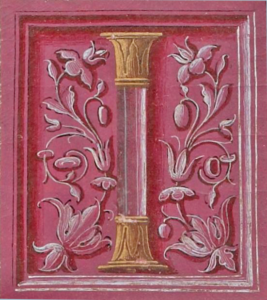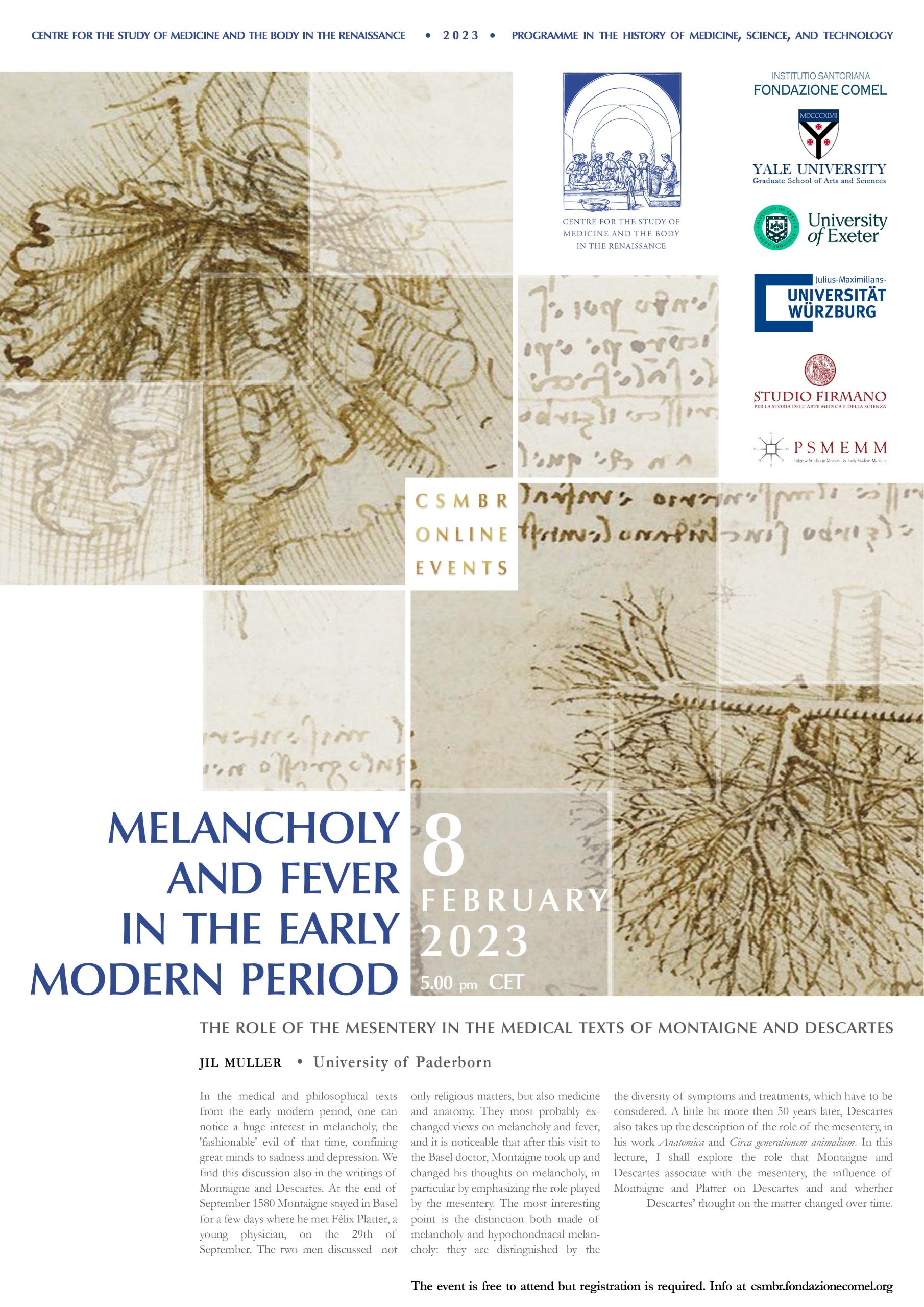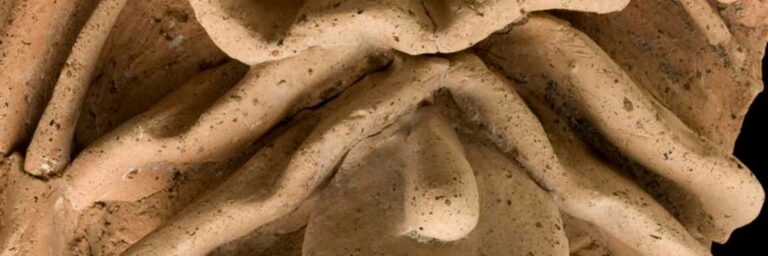Melancholy and Fever in the Early Modern Period


Melancholy and Fever in
the Early Modern Period
The Role of the Mesentery in the Medical Texts of Montaigne and Descartes
Jil Muller
8 February 2023 – 5 PM (CET)
In the medical and philosophical texts from the early modern period, one can notice a huge interest in melancholy, the ‘fashionable’ evil of that time, confining great minds to sadness and depression. We find this discussion also in the writings of Montaigne and Descartes.
At the end of September 1580 Montaigne stayed in Basel for a few days where he met Félix Platter, a young physician, on the 29th of September. The two men discussed not only religious matters, but also medicine and anatomy. They most probably exchanged views on melancholy and fever, and it is noticeable that after this visit to the Basel doctor, Montaigne took up and changed his thoughts on melancholy, in particular by emphasizing the role played by the mesentery.
The most interesting point is the distinction both of them made between simple and hypochondriacal melancholy: they are distinguished by the diversity of symptoms and treatments, which have to be considered.
A little bit more than 50 years later, Descartes also takes up the description of the role of the mesentery, in his work Anatomica and Circa generationem animalium. For him, melancholy is a quality of the blood, which is not produced by separation, but rather by addition.
According to this Cartesian explanation, the spleen must therefore be invaded by melancholy to be able to transmit it to the blood.
In this lecture, I shall explore the role that Montaigne and Descartes associated with the mesentery, the influence of Montaigne and Platter on Descartes and whether Descartes’ position on the matter changed over time.
About the Speaker ...
Jil Muller is Deputy Head of the Center for the History of Women Philosophers and Scientists, in Paderborn, Germany, and Assistant Professor for philosophy.
Her research especially focuses on French Women Philosophers and Scientists in the early modern period, such as Marie de Gournay, Sophie Germain and Émilie du Châtelet, and she is mainly concerned with their moral theories and their understanding of man in society.
She is also interested in the religious themes discussed in philosophy, such as for example the newly discussed proofs of the existence of God. She received her PhD at the University of Strasbourg, with a dissertation on Montaigne, Descartes and the question of original sin. She has published her book Soigner le corps humain. Péchés et remèdes chez Montaigne et Descartes with Classiques Garnier.







